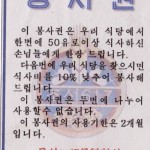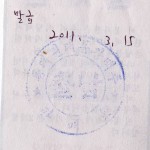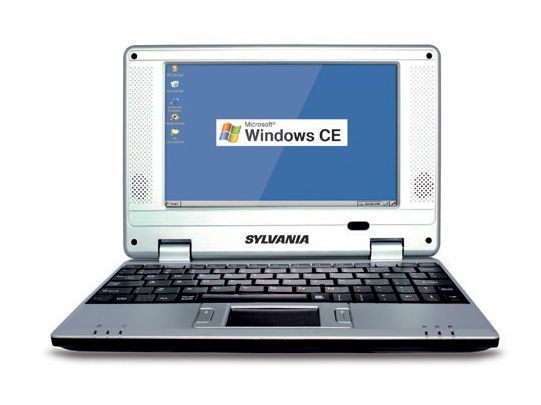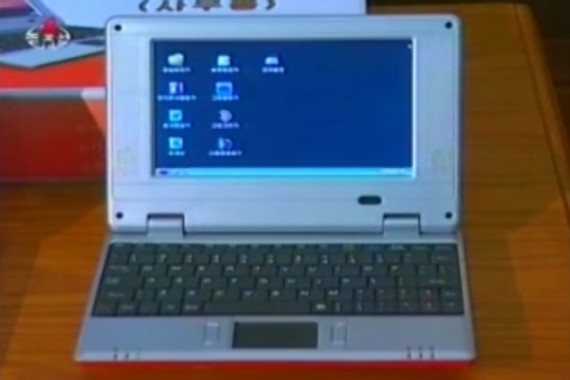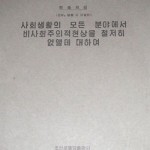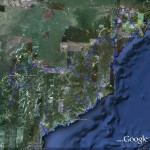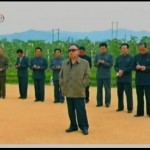UPDATE (2011-5-26): Defectors are not too happy with plans by the South Korean government to get control over remittances to the DPRK. According to the Korea Herald:
North Korean defectors here are strongly opposing a government plan to require them to gain approval before making remittances to relatives in the cash-strapped state.
They say that the approval process could put them and their loved ones in the North in dangerous situations and make brokers demand more money for delivering funds.
They also say that since their remittances are made through “complicated multi-layered” procedures, it would be difficult to detect those sending money without approval.
On Tuesday, the Unification Ministry put on public notice a revision bill mandating defectors to obtain approval when remitting more than a certain amount of money, with the cut-off figure yet to be set. Officials said the revision is aimed at “securing transparency in inter-Korean exchanges.”
“We have been scrimping on food, clothes and others to send some of the hard-earned money ― at most 1 million won ($917) ― to help our family, not the North Korean regime. The approval system is wrong,” a 43-year-old North Korean defector, who has taken asylum here since 1997, told The Korea Herald, declining to be named.
“Our remittances have been transparently made and we always check whether our relatives have received the money by talking directly to them by cellphone. Through the talks, albeit brief, defectors tell them the truth about Korean society and help enlighten them and bring about change there.”
He also pointed out that the planned system may not be effective.
“All these have so far taken place secretly. Who would ever like to willingly tell the authorities about their remittances at the risk of revealing their identities and those of their relatives in the North? One out of 10 may be willing,” he said.
A Unification Ministry official said that the government will carry out the approval system after taking into account opinions from the defectors and experts.
“There has been controversy over the legitimacy of their remittances, which has stemmed from the absence of government procedures over them. The system is aimed at systemizing their sending of the money to the North,” the official said.
“We will consider various opinions including those regarding the amount of money for which they should secure approval and measures to protect their family in the North.”
North Korean defectors usually send their money through ethnic Chinese people here, who ask their Chinese relatives or acquaintances inside the North or near the North Korea-China border to deliver the money. The brokers are known to take 30 percent of the total remittances.
According to a survey by a private Seoul-based group, which was released early this year, nearly half of North Korean defectors here have sent money to their families in the North.
The survey by the Database Center for North Korean Human Rights found that 49.5 percent said they had sent money to their families in the North, while 46 percent said they had not and 4.5 percent said that they have no family there.
The survey was conducted on 396 North Korean defectors residing in the South, aged 15 or older, from Dec. 14-31 last year.
Seoul officials estimate that North Korean defectors’ annual remittances amount to $10 million.
Some people say the remittances could stimulate North Koreans’ longing for the affluent life south of the heavily fortified border. Others, however, are concerned that the money could get into the wrong hands in the notoriously autocratic regime.
The number of North Korean defectors living here stands at 21,294 as of April. It is expected to rise as food shortages and oppression continue in the reclusive state.
And according to Yonhap:
The Unification Ministry has announced its plans to revise a law that would require defectors to receive government approval before sending money to their families.
The ministry, which handles inter-Korean affairs, said the move is aimed at legalizing the money transfers and increasing their transparency.
Defectors said their families in the North usually receive some 70 percent of their remittances as brokers who arrange the deals take some 30 percent of the money as a fee.
The ministry said it would give some wiggle room for defectors by exempting them from receiving mandatory approval in case they remit a certain amount of money for their families to support them or to help them seek medical treatment.
Details have yet to be arranged. The revision process would take months as other government ministries must screen any changes before the new law’s submission to the legislature for approval.
The new revision is expected to take effect as early as the second half of next year.
The move “is not trying to regulate humanitarian money remittance,” a government official said on condition of anonymity, citing office policy.
Still, the proposed move triggered a backlash from defectors, who fear that the government regulation could complicate the process of money remittance and jeopardize their families in the North.
“I have no choice but to give money to family members in the North as they live on the money I send to them, but I cannot give any information to the government,” a defector said, asking not to be identified, citing security concerns for family members in the North.
ORIGINAL POST (2011-5-23): According to the Korea Herald:
South Koreans who wish to send money to their families in North Korea will be required to get government approval in advance under a revised law, Seoul’s Unification Ministry said Monday.
All remittances between the South and North, including investments or aid to the North from an overseas corporation set up by a South Korean citizen, will require government approval, according to the revised law on inter-Korean exchange and cooperation, aimed at increasing transparency of the cross-border exchanges.
So far, only payments for commercial transactions were subject to obtain government permission in advance, raising concerns that it was hard to track other kinds of cash flow into North Korea.
North Korean defectors who have settled in the South or members of families separated by the border after the 1950-53 Korean War have occasionally remitted money to their kin in the impoverished North through bank accounts in third countries such as China.
But under the new law taking effect in the second half of this year, South Koreans are obliged to get government approval before sending or passing on inheritance to their family in the North. There will be exceptions, however, for remittances of small amounts for basic living costs or medical costs of their kin in the North.
If a corporation established by a South Korean citizen in a third country plans to invest in the North, the South Korean proprietor will now have to report to the Seoul government in advance.
South Koreans planning to send goods purchased in third countries to the North will also have to attain government permission.
A South Korean Christian aid group recently sent flour, bought in China through a Chinese nongovernmental organization called Amity Foundation, to North Korea.
South Korean companies trading with entities in the North will also be required to register, under the new law.
“Between 700 and 800 companies are believed to have records of trade with the North so far, but only 580 have been confirmed so far in a survey conducted after the May 25 regulation (on inter-Korean exchanges) last year,” a ministry official said.
“The others have either stopped doing business in the North or have gone out of contact, making it hard for the government to keep track.”
The ministry plans to set up a state-funded agency to support inter-Korean nongovernmental exchanges at all times.
So far, the ministry has allocated financial aid to support inter-Korean exchange to selected non-profit organizations once or twice a year.
Previous reports indicated that the level of remittances from the ROK to the DPRK can reach USD$10m per year.
Read the full story here:
Seoul tightens rules on cash flow to North Korea
Korea Herald
Kim So-hyun
2011-5-23

